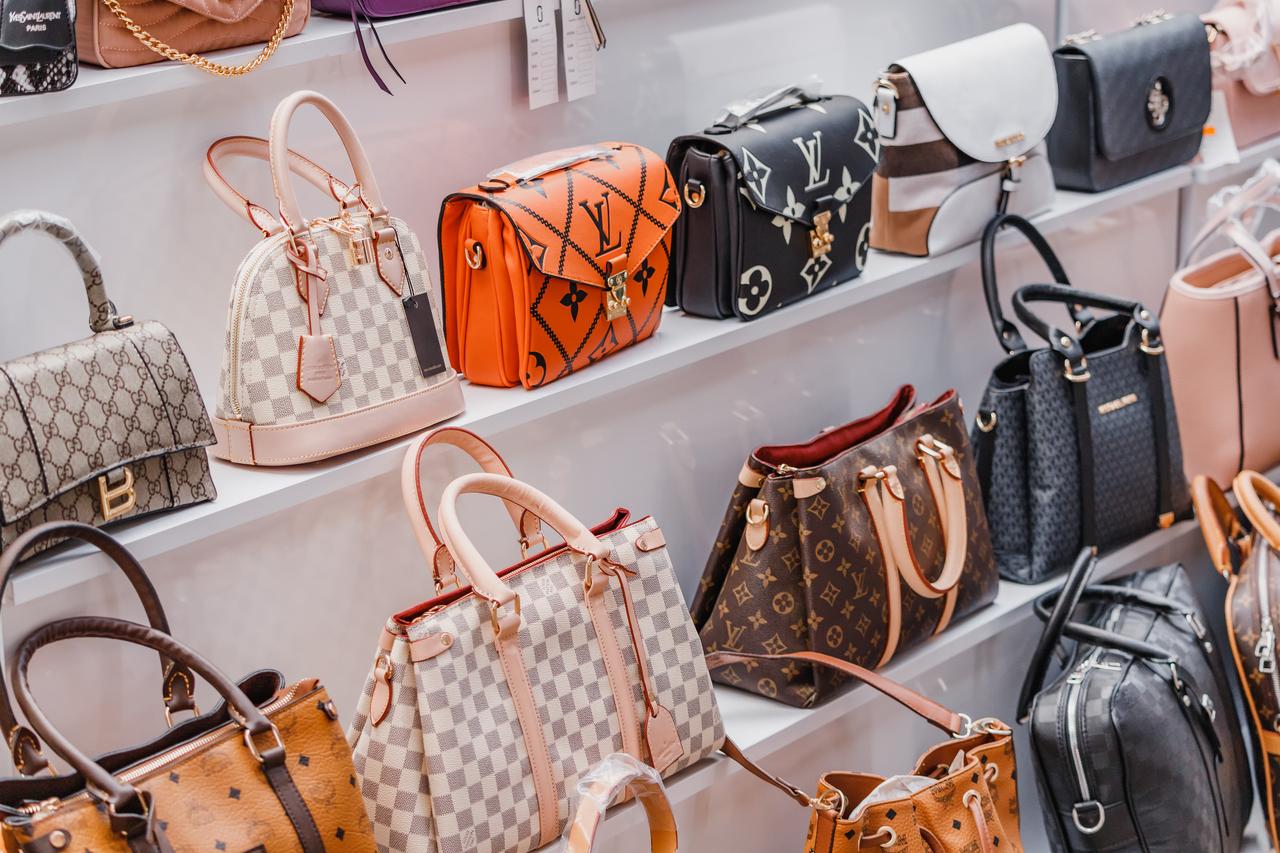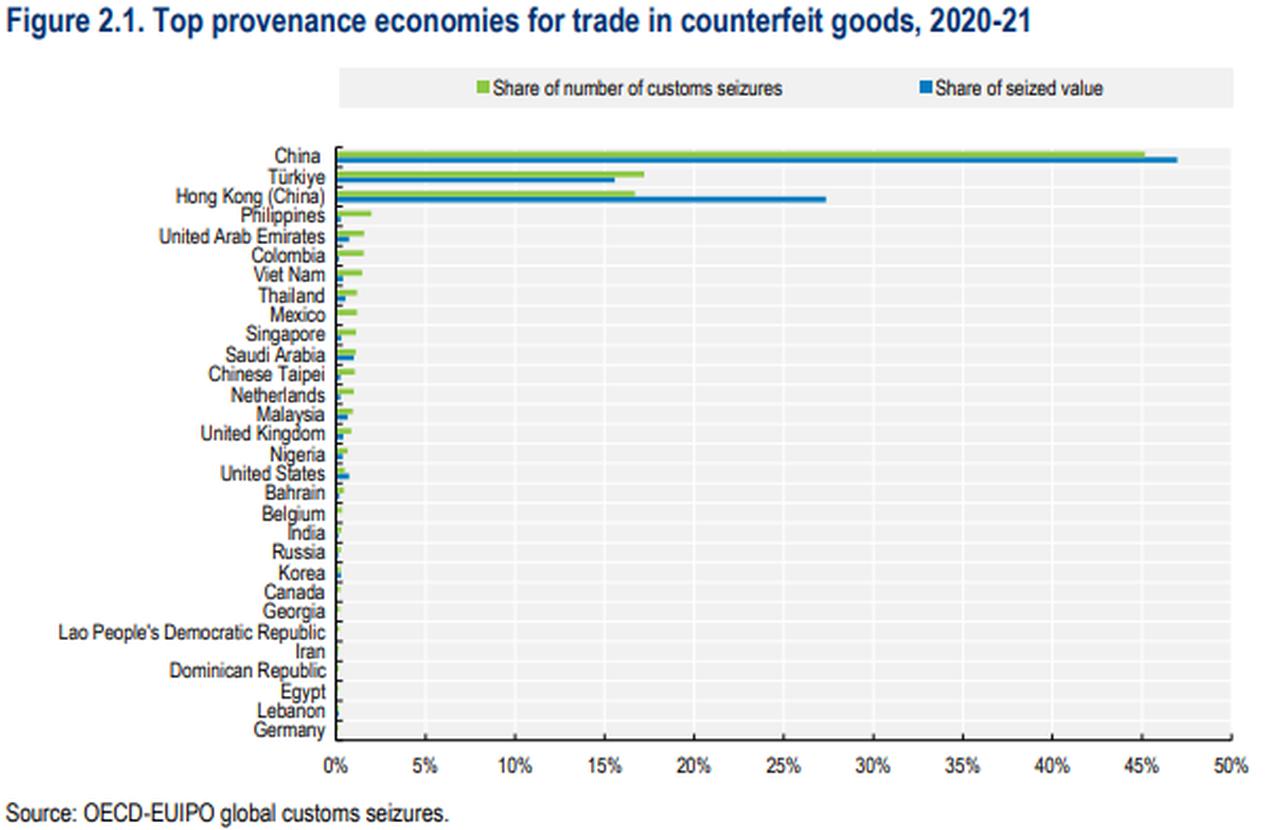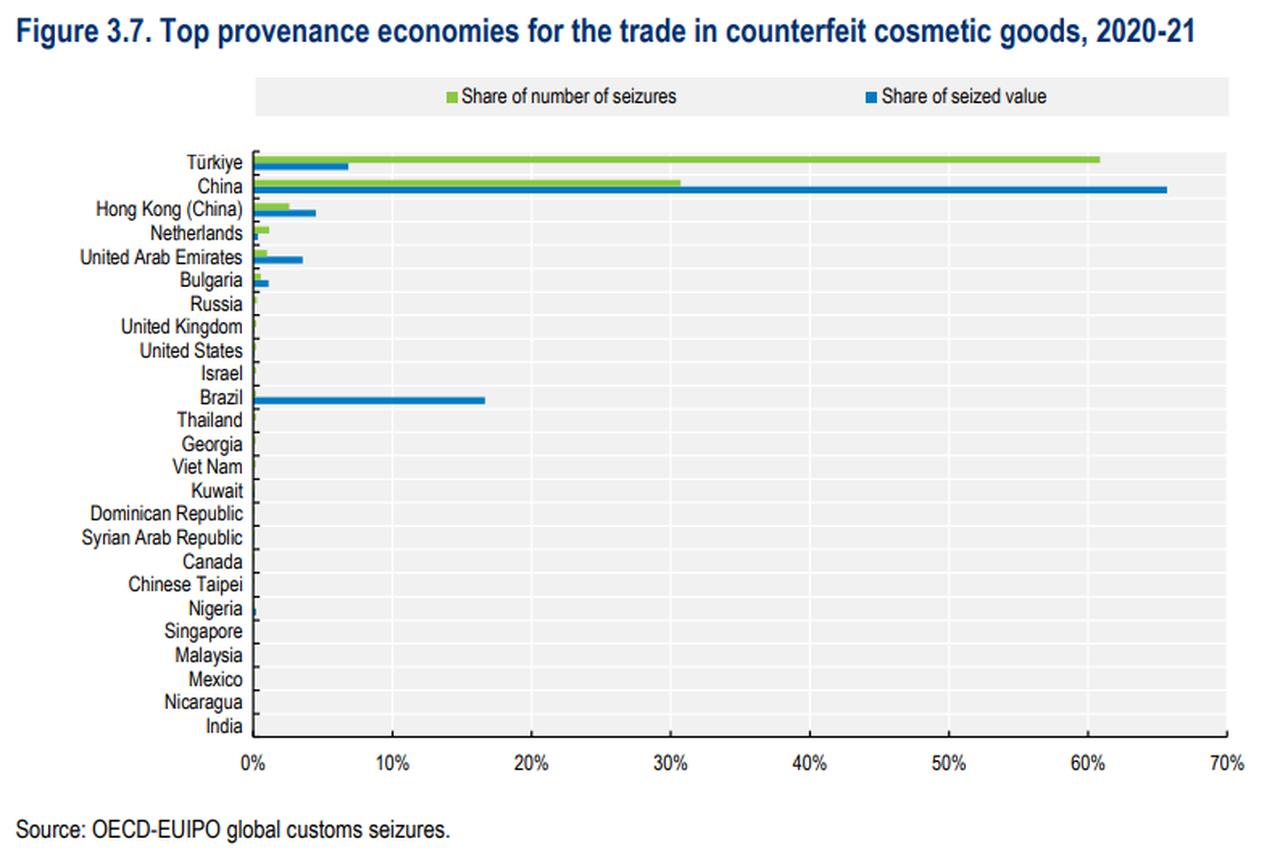
Türkiye accounted for 22% of counterfeit products seized at European Union borders in 2020–2021, making it the second-largest source globally after China, according to a new report by the OECD and the European Union Intellectual Property Office (EUIPO).
The total value of global counterfeit trade reached $467 billion in 2021, representing 2.3% of global imports. For the E.U. alone, counterfeit goods made up 4.7% of all imports, the OECD reported.

The report highlights clothing and footwear as the most frequently seized Turkish exports. Counterfeit fashion goods—often mimicking well-known brands—are mainly transported by road, with France and Bulgaria among the top destinations. Road shipments accounted for 15% of all seized fake clothing from Türkiye, reflecting a shift away from maritime transport in favor of faster and less regulated routes.
Türkiye has also emerged as a key player in counterfeit cosmetics, including perfumes, creams, and hygiene products. Alongside China, it was behind 65% of global fake cosmetics seizures. Many of these items pose health risks, as they bypass quality control and safety testing.

The report notes a growing trend among counterfeiters to assemble fake goods closer to the end market—a tactic known as “localisation.” Türkiye’s proximity to the E.U. and access to free trade zones with limited oversight have made it an ideal base for this strategy. In some cases, components like labels and packaging are shipped separately to avoid detection.
The Danube River has also become a favored smuggling route due to looser border checks along its course. Türkiye’s access to the Black Sea and proximity to the Danube basin position it strategically in this evolving network, the report noted.